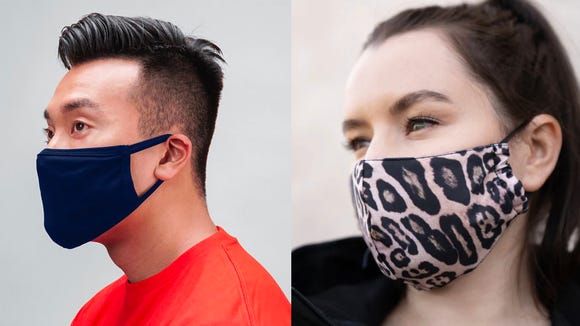
There seems to be some debate these days with a lot of misinformation out there regarding how effective face masks are against infections. One of the problems was that at the beginning of the pandemic, experts didn’t know enough about the virus to know how it was spread.
There could have been no good reason for wearing one if it could only be spread by touching an infected surface, for instance. While you can get infected by touching a surface that has droplets containing the virus if you then touch your eyes, it is also highly spreadable by air.
Now that we understand that better, the use of masks is a must if you want to slow the spread so the medical professionals have time to come up with a vaccine for it with minimal damage done in the meantime.
In this article, we will go over the types of antiviral face masks available and how well they work.
1 – N95 masks
The N95 masks are less a mask and more of a respirator. These masks will filter out small and large particles that are in the air. And not just viruses. N95 masks are also used for other applications to keep from breathing hazardous material whose smallest size is a bit larger than would necessitate a full on respirator.
They are very good at both protecting the wearer from getting exposed to the virus as well as protecting others.
Another benefit is that the filter can be adjusted so it is easier to breathe when wearing. Though adjusting it too much can also mean that it is less effective at blocking droplets. It is still much better than not wearing one and does give added insurance over a cloth mask.
They do have to fit well which means that they are properly sealed. This may require some training on the part of the person wearing it. They are also expensive as they are disposable. They are not meant to be worn multiple times. Currently, there is some work being done to try to find a way to sterilize them so they can be worn over and over again.
2 – Cloth masks
This type of mask is much more common as they can be washed after each use. Now, they aren’t as effective as a N95 mask, but they do block enough droplets to be 80% effective at stopping the spread of germs. They don’t necessarily protect the wearer from infection as the cloth is usually porous enough to allow droplets to pass through when breathing in.
When everybody is wearing this type of mask, it can be a very effective tool at slowing down the spread of any type of infection and not just Covid-19.
Conclusion
Wearing masks alone is not the antidote to stop the spread of an infectious disease. It also involves very frequent hand washing, avoiding crowds in general and not touching your face until you’ve sanitized your hands.
Mask use should continue even after a vaccine is found for Covid-19 as it can stop the spread of many other airborne viruses.